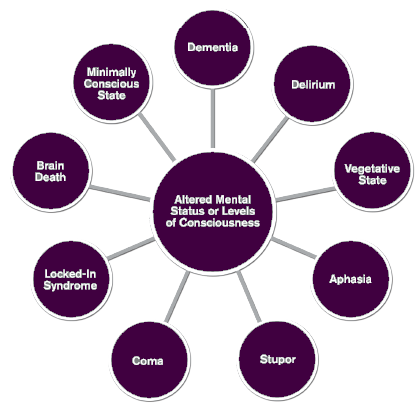Q&A: Reporting altered mental status and encephalopathy
Q: Can we code altered mental status as a manifestation and encephalopathy together?
A: In answering the question, we must consider what is documented before or after the CDI effort.
Before CDI Effort: If all that is documented is “altered mental status” and “encephalopathy,” I would assign the following two codes:
- R41.82 altered mental status, unspecified
- G93.40 encephalopathy, unspecified.
Given that R41.82 is a Chapter 18 symptom code, given that the ICD-10-CM Official Guidelines for Coding and Reporting state that “Signs and symptoms that are associated routinely associated with a disease process should not be assigned as additional codes, unless otherwise instructed by the classification,” and given that an altered mental status is integral to having an encephalopathy, I would only report G93.40.
After CDI Effort: CDI specialists need to obtain the specificity of the following:
- The nature of the altered mental status: Options include dementia, delirium, psychosis, stupor, coma, etc.
- The nature of the encephalopathy: Options include hypertensive, metabolic, anoxic, toxic, hepatic, etc.
- Linkage of the cause and effect of these two condition
Given that most of the specified altered mental statuses vary with differing types of encephalopathy, I believe that if these three elements of CDI review are answered that both the manifestation (e.g. acute or chronic delirium, dementia, coma) and the underlying cause (e.g. toxic encephalopathy, anoxic encephalopathy) can be coded.

Complete Training Guide, Second Edition.
Editor’s note: This question was answered by James S. Kennedy, MD, CCS, CDIP, after the January 17, 2018, episode of ACDIS Radio. Dr. Kennedy is a general internist and certified coder, specializing in clinical effectiveness, medical informatics, and clinical documentation and coding improvement strategies. Contact him at jkennedy@cdimd.com.
